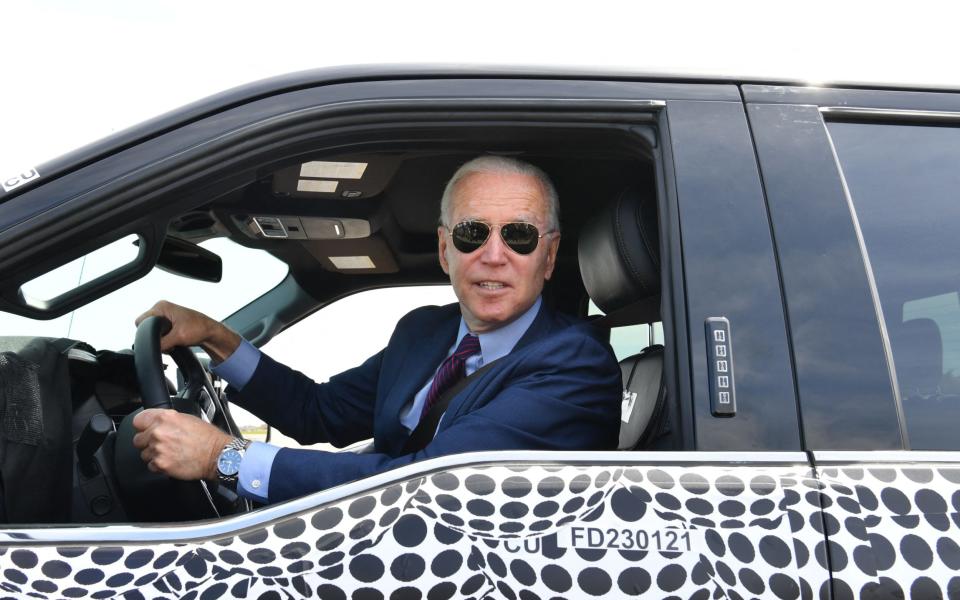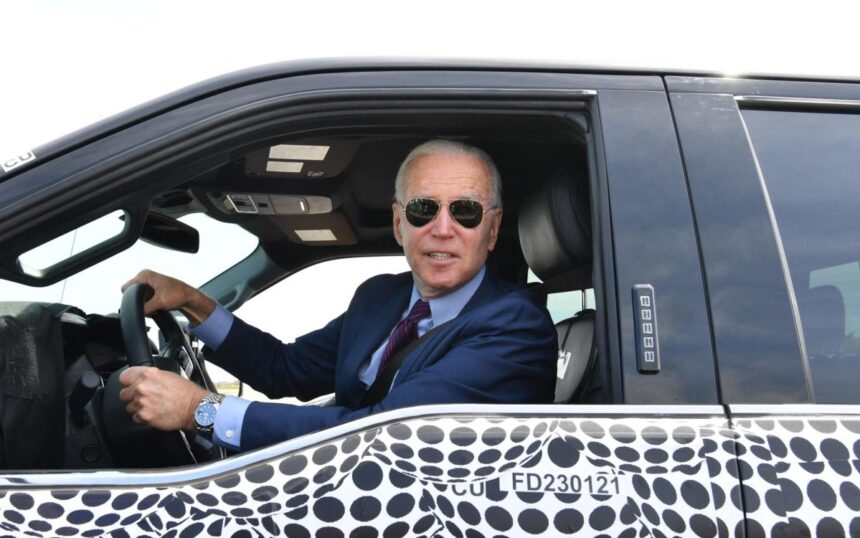
Joe Biden’s race to embrace electric vehicles risks overwhelming US charging infrastructure and creating disastrous supply shortages, two of the world’s biggest carmakers have said.
Toyota and Vauxhall owner Stellantis accused the President of being “overly optimistic” in his push for a rule that would require two thirds of new vehicle sales to be electric by 2032.
The companies were quick to point out that they support a move to low-emissions vehicles and electric cars in particular but warned that they need customers to buy them and that costs are still too high for the mass market.
The cars typically cost about £10,000 more than comparable petrol-burning versions, with many drivers able to recoup the difference through cheaper charging over the life of the vehicle.
Toyota warned the US Environmental Protection Agency (EPA) that there would also be a rush to secure lithium and other minerals needed to make battery-powered cars if the plans went ahead.
Toyota said: “The proposed rule underestimates key challenges including the scarcity of minerals to make batteries, the fact that these minerals are not mined or refined in the US, the inadequate infrastructure, and the high cost of [battery electric vehicles].”
Stellantis, which owns Vauchall, Fiat and Chrysler among other brands, said: “The proposed rule significantly underestimates the actions needed to build the targeted EV market.
“Addressing concerns such as manufacturing capacity, battery production, charging infrastructure, and consumer acceptance of EVs will be paramount to the success of this ambitious proposed regulation.”
The reticence from Toyota and Stellantis is at odds with Tesla, which only makes battery-powered cars and is one of the largest producers.
It said the EPA could even increase its targets based on “the rapid pace of light-duty vehicle electrification”.
Broaden your horizons with award-winning British journalism. Try The Telegraph free for 1 month, then enjoy 1 year for just $9 with our US-exclusive offer.








